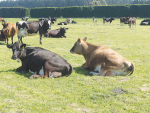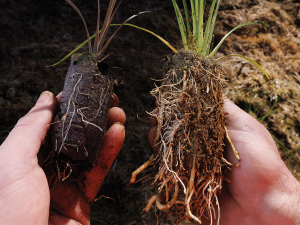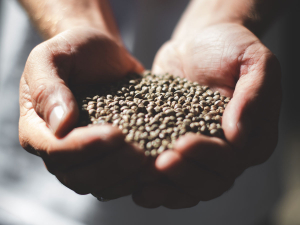Breaches of the animal welfare regulations have long tarnished the image of New Zealand farming.
The bobby calf scandal, as exposed by an animal rights organisation and which led to the formulation of new regulations, is one high-profile example. There have been others.
But a good law is no guarantee of preventing some farmers from failing to meet their legal obligations to treat animals well. Prosecutions of farmers mistreating stock appear with monotonous regularity in the media.
But the news is not all bad, says Professor David Mellor, a bio-ethics specialist at the School of Veterinary Science, Massey University.
He says farmers are now more keenly aware of what animal welfare means than they were 20-or-so years ago. Farmers then did not fully understand what was required and the extent of the pain and other unpleasant experiences animals can feel.
Nowadays, when a breach of animal welfare regulations is reported, the regulators look to see how and why this occurred.
“For example, did the animal welfare problem arise because of the personal circumstances of the producer and did this result in a catastrophic outcome?” Mellor says.
“The next question asked is whether or not it is a matter of education or a misunderstanding of the law, and will some form of education -- such as people coming onfarm to demonstrate best practice -- solve the problem?”
But Mellor says if farmers don’t respond positively to advice or are antagonistic to it, then the authorities have to decide whether or not a prosecution is merited.
In some cases, where there is compelling evidence of obvious ill-treatment or wilful or persistent ill-treatment, a prosecution may be taken immediately.
“Taking a prosecution is a big step because by their nature they are extremely expensive and there needs to be compelling evidence to secure a guilty verdict,” he explains.
In dealing with animal welfare problems, Mellor says, the Animal Welfare Act focuses solely on the welfare of animals and no account is taken of wider implications such as damage to the reputation of NZ agriculture.
In recent years, much has been said by farming industry leaders and scientists about the fallout for NZ from cases of animal cruelty. It has been said that consumers in our high-value markets want assurances that animals are treated well, in some cases as a precondition for buying our products.
Mellor says the NZ public are quick to seize on breaches of animal welfare standards, so sticking to the rules is necessary to maintain public support for farming.











